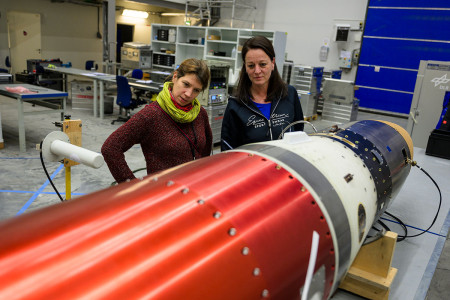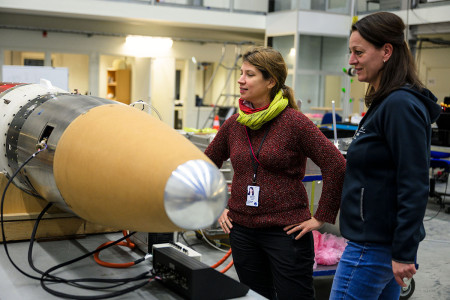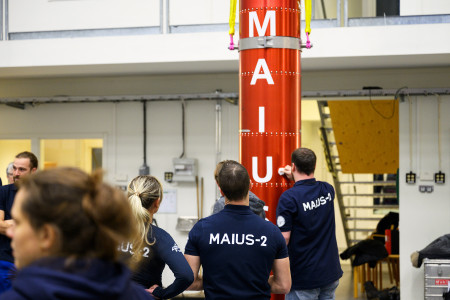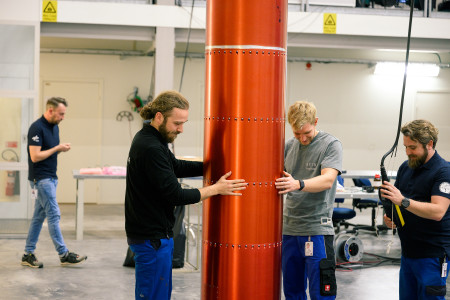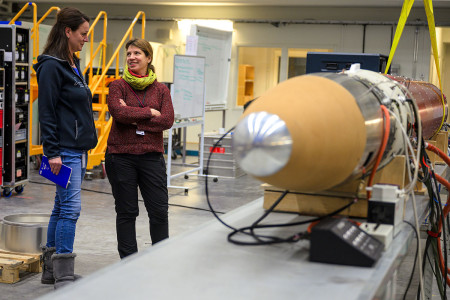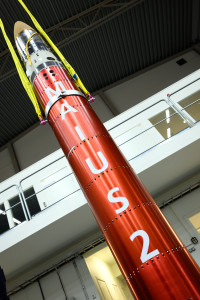🇸🇪 The universe’s coldest particles are produced on a rocket from Esrange
Press release from SSC
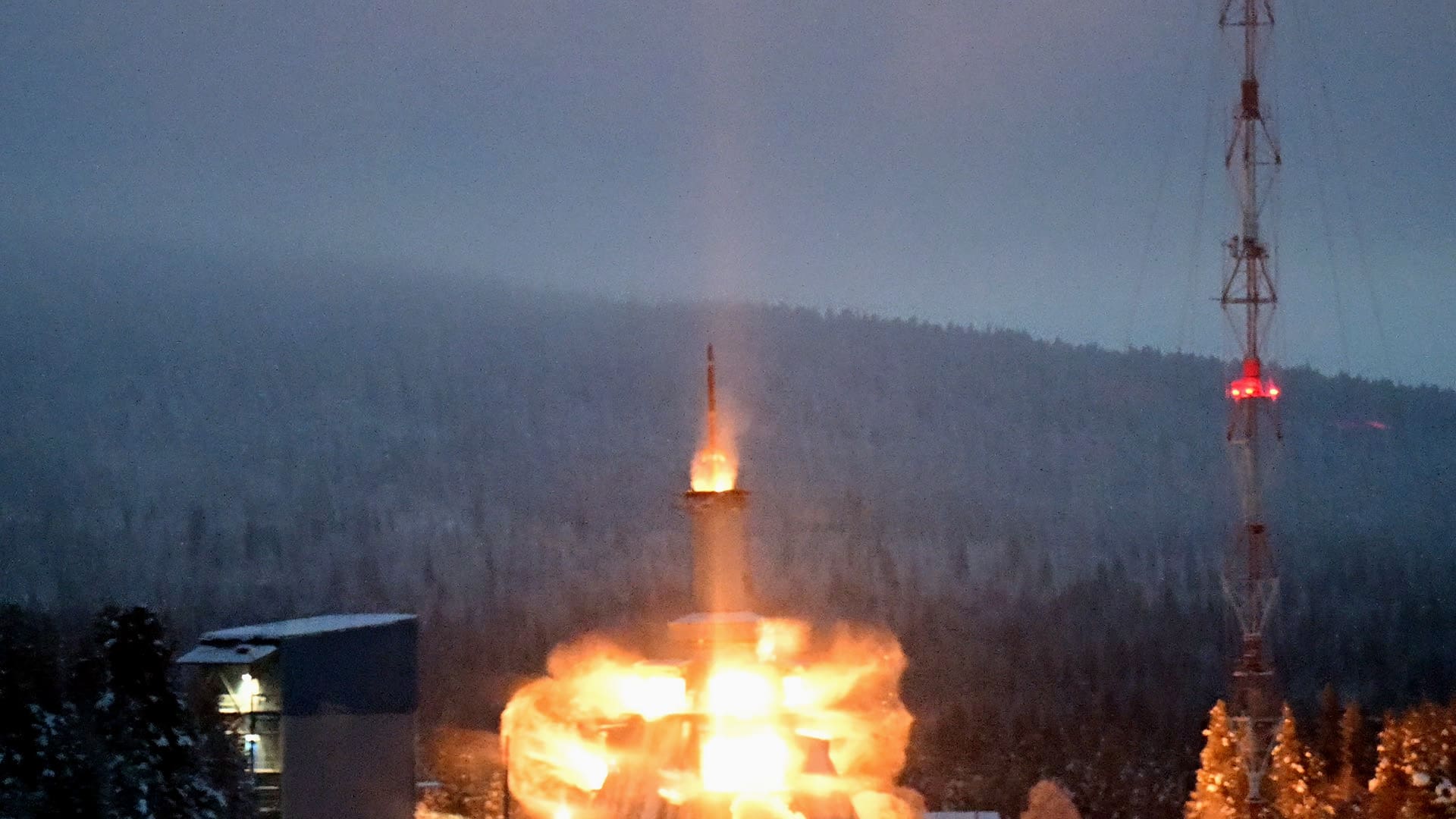
Ever heard of Einstein’s theory of relativity? At 08:30 LT on December 2, 2023, the MAIUS-2 rocket was launched from the Esrange Space Center outside Kiruna. On board are research experiments that study extremely cold particles, in fact the coldest in the whole universe at the time. By extension this experiment will show how well Einstein’s theory of relativity applies to quantum physics.
In the MAIUS-2 rocket campaign, the German space agency DLR continues its research into what is known as the Bose-Einstein condensate. In the experiment, which is carried out in microgravity conditions onboard a research rocket, particles will be cooled down to just a few nanokelvin degrees above absolute zero. In this state, a kind of quantum physical phenomenon occurs which means that tens of thousands of particles called bosons get such a low kinetic energy that they practically behave as a single particle.
The research on Bose-Einstein condensates has already given rise to the Nobel Prize in Physics in 2001, and at the last MAIUS campaign in 2017, it was the first time that a condensate was ever produced in microgravity conditions. Since then, the experiments have been tested further on board the International Space Station, ISS, and now it was time for the next rocket launch from Esrange, where particles from both Rubidium and Potassium were used.
“It is the first time that we have two species of Bose-Einstein condensates in the same experiment on a sounding rocket. Now we will study how the different atoms behave before an upcoming mission where a follow-up experiment will be taken to the ISS for further studies” says Dr. Rebekka Grellmann, Project Manager at DLR.
The initial situation mainly concerns fundamental physics research, but there may be several applications in the future. Among other things, it becomes easier to study particles that are in the Bose-Einstein state because from a physical point of view they behave as one single large particle.
“One conceivable area of use could be to build very precise measuring instruments for acceleration. But seen from the perspective of fundamental research, it is about studying the Theory of Relativity and how well it holds up when it comes to quantum physics” explains Dr. Rebekka Grellmann.
Return of a legend
The launch of MAIUS-2 also was the first from the newly renovated Skylark launcher, since the launcher was damaged in the unfortunate fire back in 2021.
“One could say this is the return of a legend – the Skylark Tower is indeed one of the most iconic parts of the Esrange skyline. I am pleased that the first launch from it was a successful one, and I am looking forward to many more in 2024,” says Lennart Poromaa, President Science Services and Head of Esrange Space Center.
The launch itself was successfully carried out and the payload with very important research data could be recovered back to Esrange the same day.
“It is always exciting to be part of a team contributing to cutting edge science and it is a pleasure to work with the DLR team. We hope that this mission will provide them with the data they require” says Dr. Samantha J. Smith, SSC project manager.
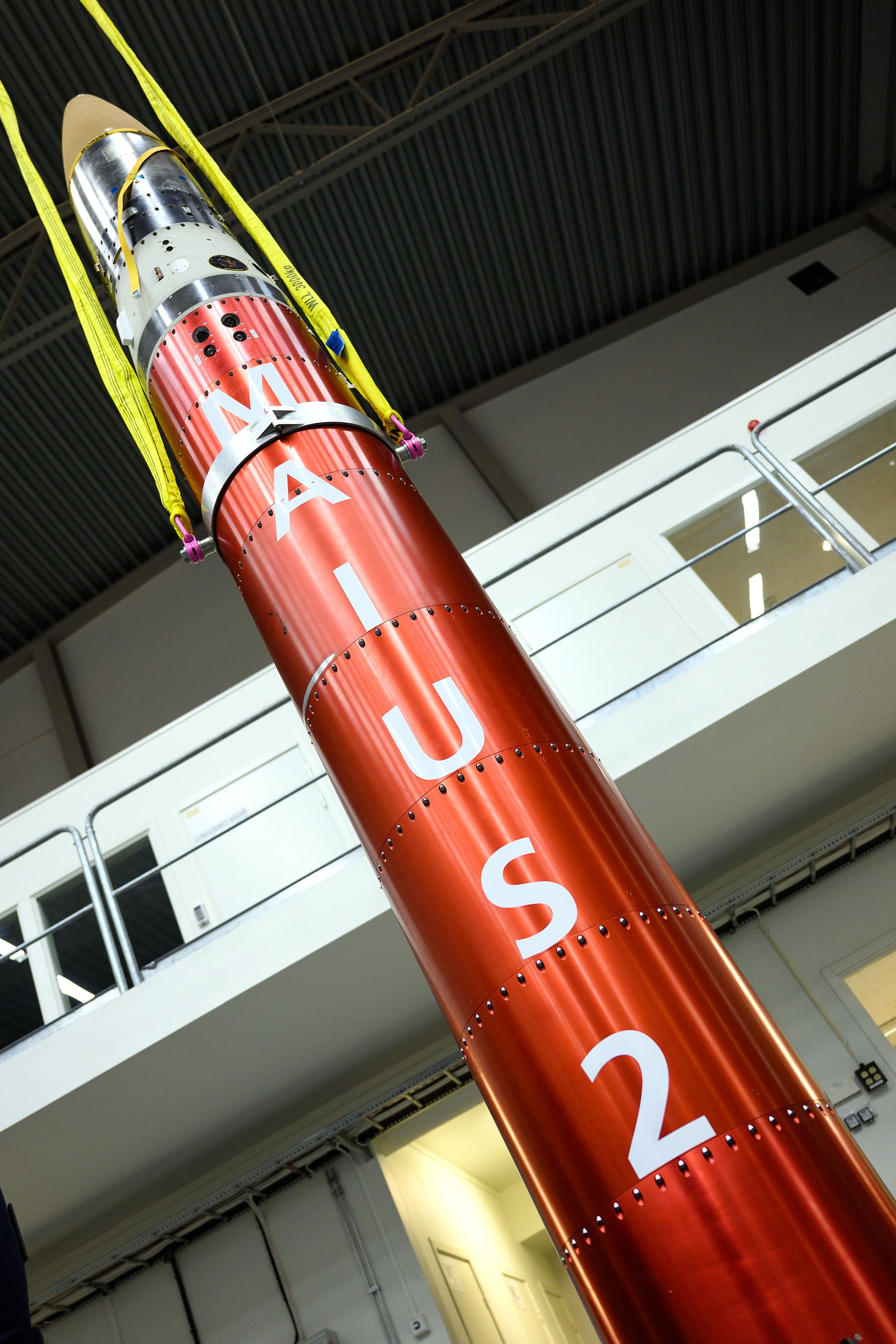
General information
| LAUNCH SITE | Esrange Space Center |
| LAUNCH PERIOD | 16 November-3 December 2023 |
| LAUNCHED | 07.30 (UTC) 2 December 2023 |
| ROCKET TYPE | VSB-30 (S30 and S31 motor combination) |
| APOGEUM | 234 km |
| CAMPAIGN PARTNERS | Leibniz University Hannover, Humboldt University Berlin, Ferdinand-Braun Institute Berlin, Johannes Gutenberg University Mainz, German Aerospace Center Brunswick, ZARM, DLR Moraba, SSC, DLR Institute for Software Technology, DLR Institute for Satellite Geodesy and Inertial Sensing, German Space Agency at DLR |
| PROJECT MANAGERS | SSC: Samantha Smith – DLR Moraba: Katharina Lesch |
Originally published on 5 December by SSC.
Announcements are published as a service to readers. The sender is responsible for all content.
Announcements for publication can be submitted to pr***********@ar**************.com.
